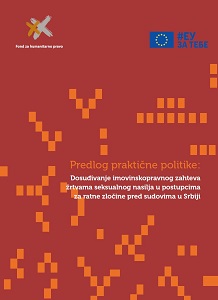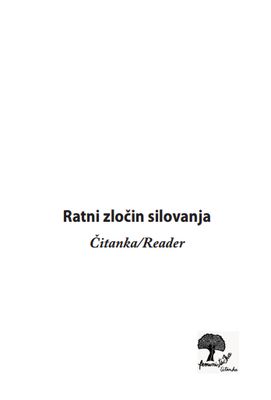
We kindly inform you that, as long as the subject affiliation of our 300.000+ articles is in progress, you might get unsufficient or no results on your third level or second level search. In this case, please broaden your search criteria.




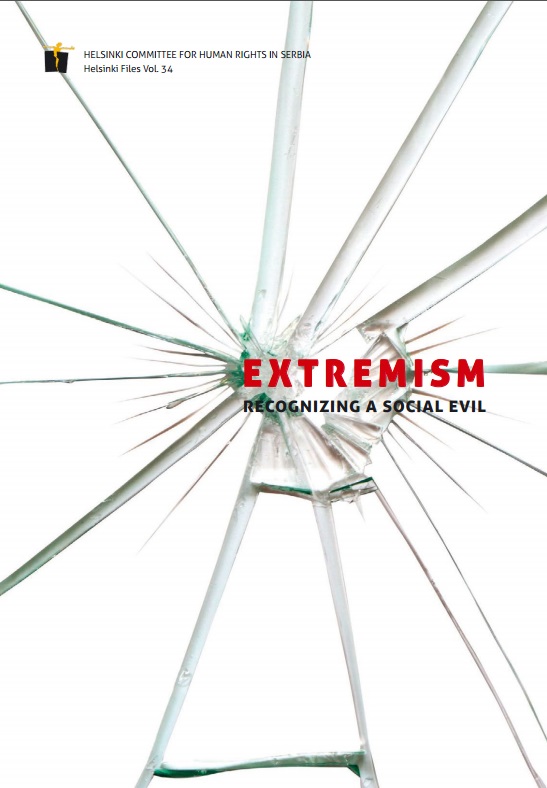
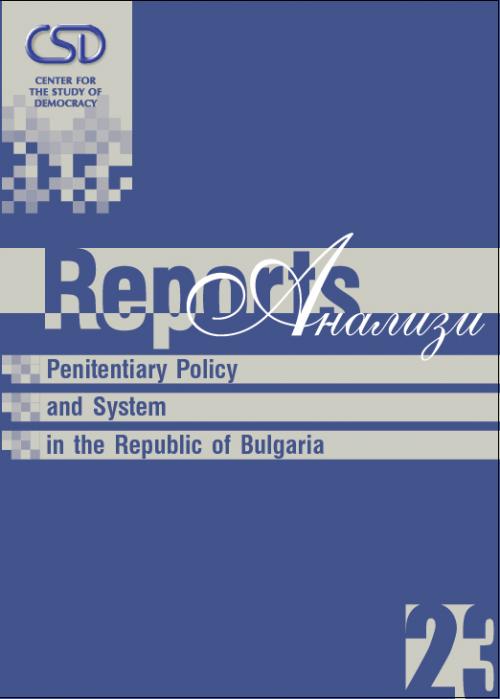
The report explores to what extent Bulgaria has introduced the European standards in the legal regulation of the prison system and the execution of the penal sanction of imprisonment, how are they implemented in practice, what is the State’s penal policy and strategy in this area in general and in respect to drug-addicted prisoners in particular, and what is the opinion of the people working in the penitentiary system and the non-governmental organizations monitoring the activities of penitentiary facilities.
More...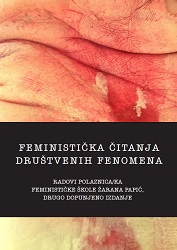
Od nastanka svijeta pa do danas bivstvuje i nasilje kao oblik (ne)prihvaćenog ponašanja i socijalne interakcije među pojedincima_kama, grupama ljudi, državnog sistema i globalne politike. Definiranje nasilja je jedan od najtežih zadataka s obzirom na širok spektar aktivnosti koje obuhvata. Svjetska zdravstvena organizacija (WHO) definira nasilje kao „namjerno korištenje fizičke sile i moći prijetnjom ili postupkom prema samom_oj sebi, prema drugoj osobi ili prema grupi ljudi ili čitavoj zajednici, što bi moglo rezultirati ili rezultira ozljedom, smrću, psihološkim posljedicama, nerazvijenošću ili deprivacijom.“ Nasilje kao društveni fenomen je uvijek pitanje moći pojedinca_ke, grupe ljudi, institucije ili države. U izvještaju Svjetske zdravstvene organizacije o globalnom statusu prevencije nasilja iz 2014. godine navedeno je da više od 1,3 miliona ljudi diljem svijeta umre svake godine kao rezultat nasilja u svim njegovim oblicima (nasilje prema samom_oj sebi, međuljudsko i kolektivno nasilje), što predstavlja 2,5% globalne smrtnosti.
More...
Kosovski reditelj Isa Qosja nije od onih koji su češće na crvenom tepihu već u vlastitoj dnevnoj sobi, niti je od onih čije će fotografije dnevne sobe krasiti stranice šarenih magazina. U vremenu površnosti i koncentracije konzumenta/ice na sadržaj u maksimalnom trajanju od 15 minuta, ni Qosjin opus nije previše blizak široj publici.
More...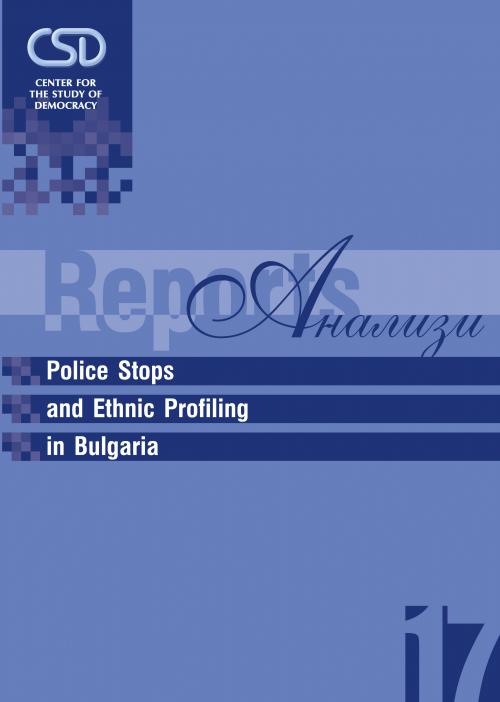
Between June and December 2005 the Center for the Study of Democracy and Vitosha Research, supported by the Open Society Justice Initiative carried out a study of police stops. The resulting report Police Stops and Ethnic Profiling in Bulgaria examines the use of stops by the Bulgarian police, focusing on the practices of disproportionate stops of members of the Roma ethnic minority. The report also highlights issues related to police abuse during stops as well as crime among in Roma communities. // The study is part of a Europe-wide initiative aimed to map discriminatory police practices across Europe. In addition to Bulgaria, research was carried out in Spain, Hungary and Russia indicating that there is disproportionate treatment of minorities by the police in all these countries. // Police stops are the main point of contact between officers and citizens. Police officers view stops as essential for detecting and preventing crime. Therefore, the appropriate use of this tool is crucial to police efficiency, whereas when used in the wrong way, it could seriously deteriorate the relations between citizens and the police. The findings and the report were launched at a public meeting of the National Crime Prevention Commission on September 19, 2006.
More...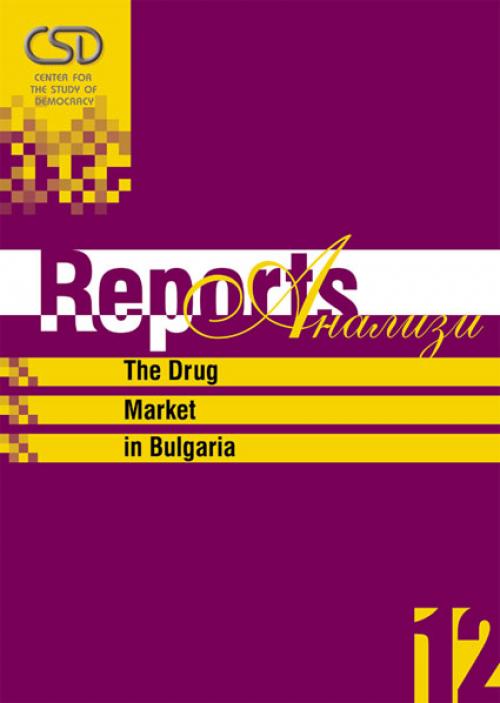
The Center for the Study of Democracy has undertaken a special inquiry into the topic of drug abuse - which was fueled by the drug epidemic of the late 1990s and has grown to become a real social threat - and the problem of drug dealing, which is a major mechanism for the generation of organized crime in Bulgaria. This report addresses drug supply and demand in Bulgaria with the ambition of mapping a vast information void and identifying the basic mechanisms and stakeholders of the drug market. However, the peculiarities of drug diffusion and consumption do not allow the use of the standard suite of economic research tools and vehicles throughout the study. This analysis has been divided into three sections. The first addresses the genesis of drug distribution, while the second describes its structure and functioning. The findings about supply presented in the first two parts are based on a series of in-depth interviews with dealers of different groups of drugs, long-term drug users, with police and security officers (experienced in combating drug traffic, drug production, and drug dealing), doctors, and civil organizations engaged in treatment services to drug addicts. Section 3 highlights drug demand, and brings into play the findings of the First National Population Survey on Drug Consumption in Bulgaria conducted by Vitosha Research. For the purpose of this study, CSD and Vitosha Research used the research tools of the European Monitoring Center on Drugs and Drug Addiction (EMCDDA). While paying attention to a variety of views, the team of authors has tried to find common ground upon which to evaluate the actual number of drug users in the country. Even if population-based surveys are often unreliable due to stigmatized and hidden patterns of drug use, they are the type of surveys that provide a comprehensive representation of the situation in the country, as well as reference material for later in-depth studies.In addition, a series of indirect variables, tailored to Bulgarian circumstances, were drawn up to register psychoactive substance use. Two more surveys, of the qualitative type, were conducted: one among heroin addicts and frequent users of soft drugs, and another among experts and treatment agencies. This report was developed by the CSD as part of project evaluating the patterns of drug supply and demand in Bulgaria.
More...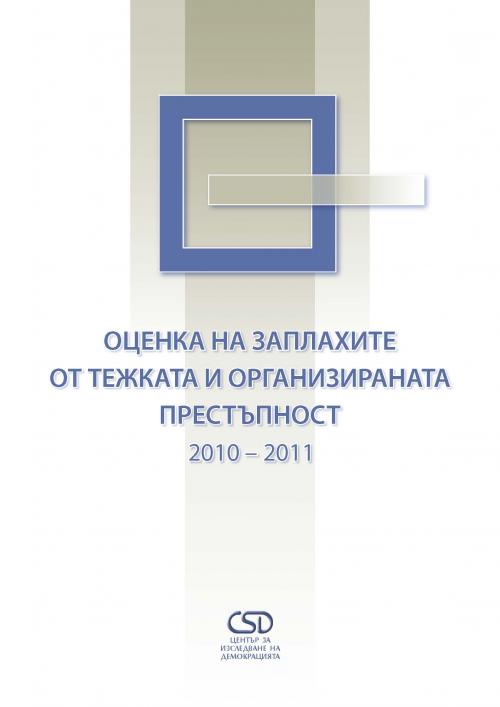
The report Serious and Organised Crime Threat Assessment 2010-2011 (SOCTA) analyses the current state and trends in serious and organised crime in Bulgaria. The report estimates the threats generated by these criminal activities and ranks them according to the harm they cause Bulgarian society. The analysis is intended to support a better informed evidence-based design of anti-crime policies.
More...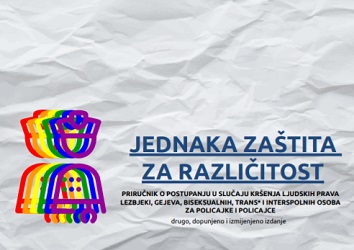
Društvo u Bosni i Hercegovini karakteriše visok stepen homo/bi/transfobije što je rezultat neznanja, neinformisanosti, kao i razmišljanja da su LGBTI (lezbejke, gej muškarci, biseksualne, trans i interspolne osobe) osobe nešto što ne postoji u našem društvu ili nešto što dolazi sa Zapada. Ovakav stav javnosti dovodi do toga da se LGBTI osobe svakodnevno susreću sa mnogobrojnim problemima, te nerijetko i diskriminacijom i nasiljem zbog svoje seksualne orijentacije ilirodnog identiteta i spolnih karakteristika. LGBTI osobe spadaju u jednu od najnevidljivijih manjinskih grupa u BiH, zbog čega su izloženije i podložnije diskriminaciji i nasilju koji najčešće ostaju neprijavljeni zbog straha od autovanja (javnog otkrivanja njihove seksualne orijentacije i/ili rodnog identiteta i spolnih karakteristika) i nepovjerenja u reakcije državnih institucija. Zbog osjetljivosti i specifičnosti položaja LGBTI osoba u bh. društvu, veoma je bitno posvetiti dodatnu pažnu postupanju sa ovim osobama prilikom prijave krivičnog djela. Ovaj priručnik je namijenjen policijskim službenicima_ama, koji_e imaju značajnu ulogu kada su u pitanju zaštita i ostvarivanje ljudskih prava. Potrebno je da policijski_e službenici_e, kao prva i građanima najbliža instanca zaštite ljudskih prava, razumiju probleme sa kojima se svakodnevno susreću LGBTI osobe, te da budu dovoljno senzibilizirani_e da ovim osobama pristupe na odgovarajući način u slučaju krivičnih djela počinjenih prema ovim osobama.
More...
U razdoblju od 2016. do 2018. godine došlo je do poboljšanja pravnog okvira kada su u pitanju kaznena djela učinjena iz mržnje. Međutim, u praski i dalje postoje problemi koji se ogledaju u činjenici da bosanskohercegovačko društvo, kao i nadležna tijela, nije dovoljno senzibilizirano, odnosno nije dovoljno educirano kako bi ova kaznena djela bila primjereno sankcionirana. To doprinosi situaciji da žrtve kaznenih djela najčešće ostaju nezbrinute, djela neprocesuirana, što nekažnjenim počiniteljima_cama u ovakvim slučajevima šalje jasnu poruku da su njihova djela prihvatljiva i opravdana. Unatoč postojećem zakonskom okviru, koji trenutno pruža zakonsku zaštitu za žrtve i potencijalne žrtve kaznenih djela učinjenih iz mržnje, nažalost, pripadnici_e manjinskih skupina nisu u mogućnosti voditi siguran i dostojan život zbog činjenice da dijele neke od zaštićenih karakteristika. Iako je u proteklom razdoblju kontinuirano poboljšavana legislativa kada su u pitanju mržnja i kaznena djela učinjena iz mržnje, država nije uradila ništa kako na promidžbi postojeće legislative, tako niti na uspostavljanju povjerenja policije i pravosuđa s pripadnicima_ama marginaliziranih skupina. Jedan od razloga zašto članovi_ce marginaliziranih skupina ne prijavljuju nasilje upravo je nepovjerenje u pravosudni sustav, jer ga, nažalost, vide kao problem, a ne kao dio rješenja. Neprijavljivanje je dakako opravdano strahom žrtava da policijski_e službenici_e, tužitelji_ce i suci_sutkinje nisu dovoljno senzibilizirani_e i nemaju odgovarajući/profesionalni pristup žrtvama pripadnicima_ama marginaliziranih skupina, odnosno javni_e službenici_e imaju izražene predrasude prema društvenim skupinama koje su na marginama bh. društva. Posljedično, kaznena politika je veoma loša kada su u pitanju ova kaznena djela. Drugi razlog je što izostaju državni sustavni programi educiranja i senzibiliziranja policije i pravosuđa. Sav teret senzibilizacije i edukacije preuzimaju organizacije civilnog sektora i međunarodne organizacije koje djeluju na teritoriju BiH, a bave se tematikom i problematikom mržnje i kaznenih djela učinjenih iz mržnje. Iz dokumentiranih slučajeva može se primijetiti, nažalost, da ova kaznena djela imaju tendenciju rasta zbog neprimjenjivanja trenutnog postojećeg zakonskog okvira, prema kojem počinitelji_ce mogu biti sankcionirani_e, te da je potrebno poboljšanje trenutnog zakonskog okvira, odnosno harmonizacija kaznenih zakona u Federaciji BiH i Brčko distriktu s Krivičnim zakonom Republike Srpske.
More...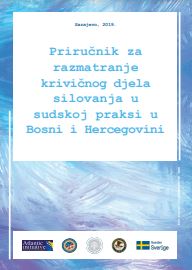
Iako silovanje predstavlja najteže krivično djelo protiv spolne slobode i morala i jednu od najtežih inkriminacija u okviru savremenih krivičnih zakonodavstava, analiza dostupnih predmeta koju je Atlantska inicijativa provela krajem 2017. godine ukazala je na potrebu da se krivičnom djelu silovanja posveti dodatna pažnja u pravosudnim sistemima u Bosni i Hercegovini. Rezultati ove analize, predstavljeni u trećem poglavlju ove publikacije, ukazali su na neujednačenu praksu sudova u razmatranju olakšavajućih i otežavajućih okolnosti, na nedovoljno uzimanje u obzir posljedica silovanja po mentalno zdravlje žrtava, na često ublažavanje kazne ili izricanje minimalne kazne predviđene za ovo krivično djelo, te na prisustvo stereotipa o ponašanju žrtava i učinilaca. Stoga je Atlantska inicijativa putem projekta „Rod i pravosuđe u Bosni i Hercegovini“ facilitirala rad panela od dvanaest sudija i sutkinja s krivičnog referata iz različitih sudova u BiH s ciljem razmatranja aktuelne sudske prakse u krivičnim predmetima silovanja te razvoja preporuka i resursa za rad na ovim predmetima. Panel se sastajao jedanput mjesečno u periodu od decembra 2017. do juna 2018. godine, kada je, putem radnih grupa, na osnovi diskusija sa stručnjacima različitih profila te razmatranja prikupljenih slučajeva, nastajao ovaj priručnik. Stav panela jeste da ovaj priručnik može koristiti sudijama i sutkinjama koji/koje rade na ovim predmetima u adekvatnijem razumijevanju krivičnog djela silovanja, njegovih posljedica i utjecaja na kasniji život žrtve, ali isto tako doprinijeti prevazilaženju dilema s kojima se oni susreću u radu s ovakvim slučajevima. Tokom svog rada panel je razmatrao normativna rješenja u Bosni i Hercegovini, s osvrtom na ujednačenost zakonskih odredbi u propisivanju ovog krivičnog djela i kazni propisanih krivičnim zakonima, ali i na odmjeravanje kazne, pri čemu su posebno analizirana normativna rješenja koja se izravno odnose na područje „sudskog odmjeravanja kazne“. Razmatrane su olakšavajuće i otežavajuće okolnosti, koje naravno nisu jedini kriterij određivanja vrste i visine kazne u svakom pojedinačnom predmetu, ali prema panelu imaju značajan, ako ne i odlučujući utjecaj da se sud opredijeli upravo za određenu vrstu odnosno visinu kazne. Panel je također razmatrao i kvalifikatorne oblike silovanja, posljedice rodnih predrasuda u seksualnom napadu, te analizirao psihološke traume koje silovanje ima na žrtvu. U diskusijama i prezentacijama razmatrana je i međunarodna praksa te koncept „silovanja bez prinude“ koji promovira Istanbulska konvencija, a koji još uvijek nije pronašao svoje mjesto među inkriminacijama protiv spolne slobode i morala, odnosno spolnog integriteta u Bosni i Hercegovini (osim zločina seksualnog nasilja kao zločina protiv čovječnosti i zločina protiv civilnog stanovništva). Ovaj priručnik, uz reference na bosanskohercegovačku i međunarodnu sudsku praksu i literaturu, donosi zaključke, preporuke i ključne nalaze panelista i panelistica. Priručnik je podijeljen u sedam poglavlja, koja se mogu koristiti odvojeno ili zajedno kao resursni materijal u radu na predmetima krivičnog djela silovanja. Poglavlje jedan razmatra krivično djelo silovanje u zakonodavstvu Bosne i Hercegovine. Poglavlje dva daje osvrt na sudsku praksu i primjenu olakšavajućih i otežavajućih okolnosti. Poglavlje tri razmatra kvalifikatorni oblik krivičnog djela silovanja. Poglavlje četiri daje pregled psiholoških posljedica krivičnog djela silovanja. Poglavlje pet bavi se rodnim predrasudama i društvenim specifičnostima krivičnog djela silovanja. Poglavlje šest razmatra specifičnosti i predrasude prema osobama s invaliditetom, manjinama i migrantima u odnosu na krivično djelo silovanja. Poglavlje sedam daje preporuke panela za razmatranje otežavajućih i olakšavajućih okolnosti prilikom odmjeravanja sankcija za ovo krivično djelo
More...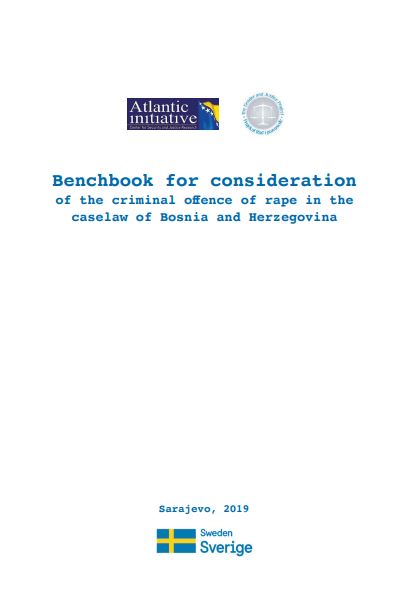
Although rape constitutes the gravest criminal offence against sexual freedom and morale and is one of the most severe allegations in contemporary criminal legislation, an analysis of publicly available cases carried out by the Atlantic Initiative in late 2017 indicated a need to direct greater attention towards the crime of rape in justice systems in Bosnia and Herzegovina (BiH). The results of that analysis, presented in the second chapter of this text, revealed inconsistent practices in the evaluation of mitigating and aggravating factors, insufficient consideration of the mental health consequences for victims of rape, and the frequent reduction of sanctions or the imposition of minimum sanctions for this offence. It also uncovered evidence that stereotypes about the behaviour of victims and perpetrators impacts outcomes. In response, the Atlantic Initiative facilitated the work of a panel of twelve judges from different courts in BiH through the “Gender and Justice Project in Bosnia and Herzegovina,” to consider existing court practices in cases of rape and develop recommendations and resources for work on these cases. The panel held monthly meetings from December 2017 to June 2018, developing this Benchbook through working groups, discussions with experts, and analysis of cases. The panel believes this Benchbook can help judges better understand the criminal offence of rape, as well as its short- and long-term effects on victims, and can play a role in helping them overcome dilemmas that arise in these cases. During its work, the panel considered legislative solutions in BiH, focusing on the uniformity of provisions governing the criminal offence of rape and the sanctions prescribed by criminal codes; but also on sentencing, particularly legislation directly relating to “court sentencing.” The panel also analysed the application of mitigating and aggravating factors, which were observed to have an important if not a decisive influence on the specific type and severity of sanctions imposed by the courts. Further, the panel reviewed qualifying forms of rape and the consequences of gender bias in sexual assaults, and took an in-depth look at the psychological traumas experienced by victims of rape. In the context of discussions and presentations, the panel analysed the international practice and concept of “rape without consent” as well, which is promoted by the Istanbul Convention but has not yet found its place in BiH (other than as a crime against humanity). Along with references to court practices and literature from BiH and beyond, this Benchbook offers the conclusions, recommendations, and key findings of the panel that developed it. The Benchbook is divided into seven chapters that can be used separately or together as a resource in work on criminal cases of rape. Chapter One considers legislation in BiH on the criminal offence of rape. Chapter Two reflects on caselaw relating to the application of mitigating and aggravating factors. Chapter Three reviews the qualifying framework of the criminal offence of rape. Chapter Four provides an overview of the psychological consequences of rape for victims. Chapter Five addresses gender bias and socio-cultural specificities of the criminal offence of rape. Chapter Six presents an analysis of bias against disabled persons, minorities, and migrants with regard to the criminal offence of rape. Chapter Seven provides panel recommendations for the evaluation of mitigating and aggravating factors when determining sanctions for the criminal offence of rape.
More...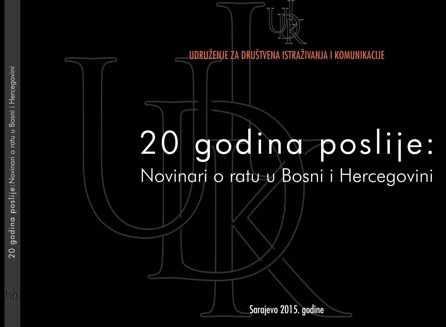
20 years later: Journalists on the war in Bosnia and Herzegovina was the first book published by UDIK. This publication documents the stories of local and foreign journalists and photo-journalists during the war in Bosnia and Herzegovina, who present their experiences and impressions of the war events of the nineties. How did information get out into the world from a city that was under siege for 44 months? What was crucial for the sleeping world to finally wake up? Irena Antić, Roy Gutman, Florence Hartmann, Ron Haviv, Morten Hvaal, Paulina Janusz, Robert King, Rémy Ourdan, Teofil Pančić, Tarik Samarah, Jasminka Šipka, Imre Szabó and Vanesa Vasić-Janeković speak about these and other topics.
More...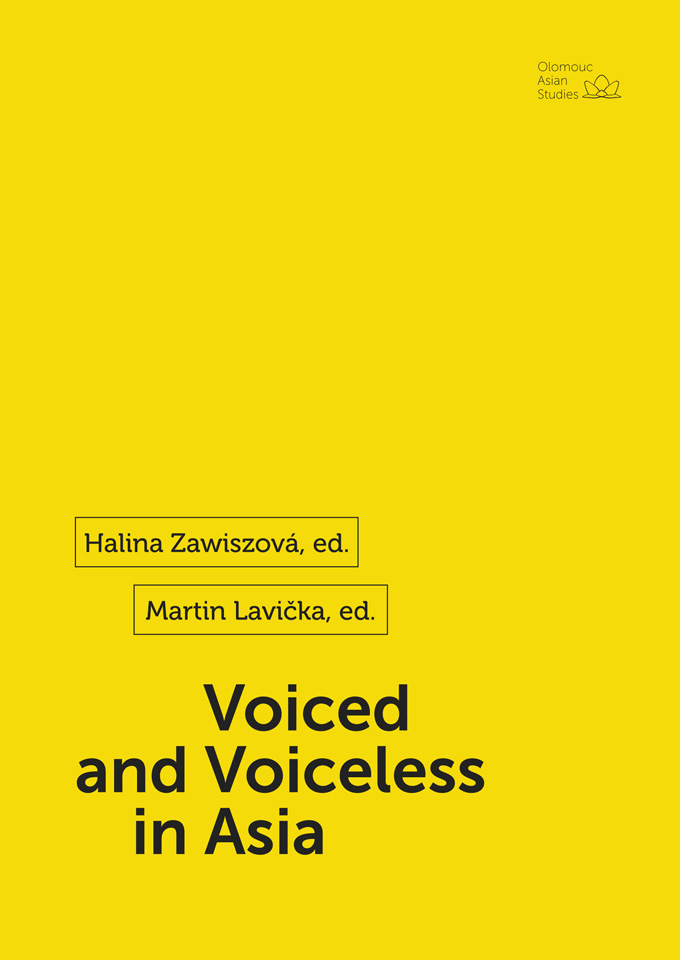
This volume consists of 19 chapters that reflect the titular theme - Voiced and Voiceless in Asia - from a variety of angles, making use of diverse scholarly approaches and disciplines, while focusing specifically on China, India, Japan, and Taiwan. The chapters are broadly divided into two parts: (1) Politics and Society, and (2) Arts and Literature, although the texts included in the second part also deal with social themes. In addition to historical topics, such as Japanese colonialism or Chinese agricultural reforms in the 1950s, the volume also addresses current issues, including restrictive Chinese policies in Xinjiang, Japanese activist movements against gender-based violence and discrimination, or the problems of migrant laborers in India and performing arts in Japan during the COVID-19 pandemic. Likewise, it provides insight into satirical woodblock prints from the Boshin War period or works of literature produced in Japanese leprosariums in the first half of the 20th century, as well as into selected topics in contemporary Chinese, Japanese, and Sinophone Tibetan literature. Collectively, the chapters comprised in this volume narrate the multifaceted relationship between 'voice' and 'power,' thus highlighting the fact that the question of 'voice' is closely intertwined with a variety of social, political, and cultural issues.
More...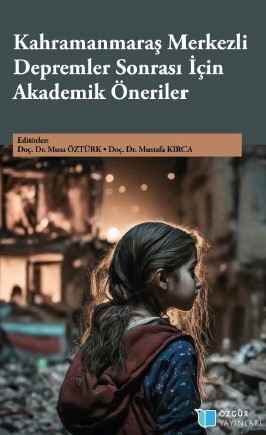
While we were preparing to celebrate the 100th anniversary of our Republic with enthusiasm, millions of our people were devastated, hundreds of thousands of our citizens were injured and more than fifty thousand people lost their lives due to the earthquakes that occurred on 06 February 2023, centred in Kahramanmaraş. With the destruction caused by earthquakes and aftershocks, the trauma caused by them and the insufficient facilities, countless kinds of victimisation were experienced simultaneously, while those trapped under the rubble tried to hold on to life, those who remained outside had to struggle with inadequate facilities and poor climatic conditions. In this disaster, which is one of the biggest disasters in the history of humanity, our people, who acted selflessly with the Anatolian consciousness, worked hard to deliver all the means they could to their brothers and sisters and demonstrated a spirit of solidarity that will set an example for the whole world. Our citizens, non-governmental organisations, relevant units of our state and international organisations have attempted to organise aid in areas such as food, clothing and shelter while engaging in search and rescue activities. In this process, although the magnitude of the earthquakes, the frequency of aftershocks, the large number of destroyed independent sections and the unfavourable climatic conditions have been taken into account, it has become clear that the aid should be better planned and organised more effectively. This book is the result of academicians coming together to meet this need and putting forward their knowledge in their fields of expertise in a way to shed light on the question of "What can be done". It includes scientific studies and policy recommendations in terms of social, economic, psychological, technical and health.
More...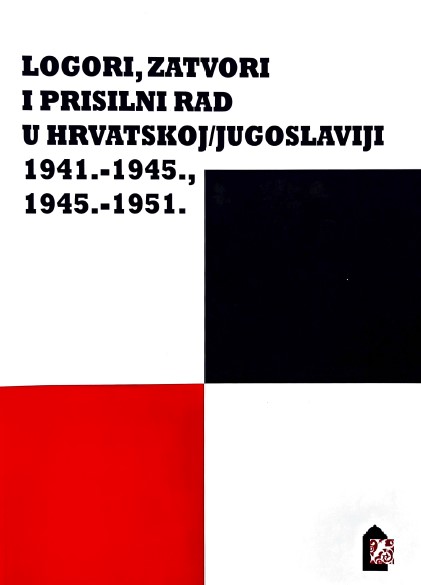
Thirteen presentations from the scientific conference "Camps, Prisons, and Forced Labor in Croatia/Yugoslavia 1941-1945, 1945-1951" held on May 12, 2009, at the Croatian Institute of History are published in this proceedings. Seven Croatian, five Serbian, and one German historian presented the results of their latest research on deprivation of freedom, camps, prisons, and forced labor during World War II and in the post-war period.
More...